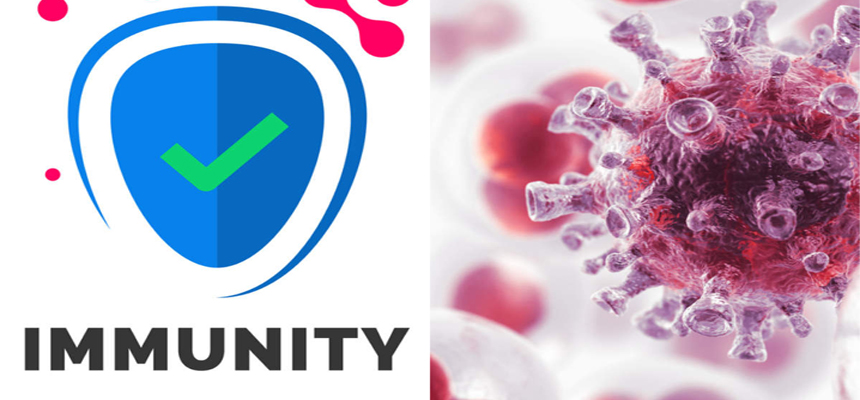Pay heed to Interstitial Lung Disease

Interstitial lung disease (ILD) is a vast category of lung diseases. It is inclusive of more than 130 disorders which are characterized by scarring (i.e. “fibrosis”) and/ or inflammation of the lungs. Nearly 5 to 10 percent patients suffer from ILD. The progression of ILD varies from disease to disease and from person to person. It is important to determine the specific form of ILD in each person because what happens over time and the treatment may differ depending on the cause. Each person responds differently to treatment, so it is important for your doctor to monitor your treatment. There’s a huge dearth of dedicated pulmonary rehab services across India. Apollo ILD Clinic has a multidisciplinary approach towards ILD patients. Dr. Ch Vijay Kumar, Consultant Pulmonologist of Apollo Hospitals, Jubilee Hills discusses ILD and variety of illnesses with diverse causes, treatments, and prognoses.
1.Q What happens in ILD?
In ILD, the tissue in the lungs becomes inflamed and/or scarred. The interstitium of the lung refers to the area in and around the small blood vessels and alveoli (air sacs). This is where the exchange of oxygen and carbon dioxide take place. Inflammation and scarring of the interstitium disrupts this tissue. This leads to a decrease in the ability of the lungs to extract oxygen from the air.
 2.Q What are the different types of interstitial lung diseases?
2.Q What are the different types of interstitial lung diseases?
![]() Idiopathic (unknown) Pulmonary Fibrosis
Idiopathic (unknown) Pulmonary Fibrosis
![]() Connective tissue or autoimmune disease-related ILD
Connective tissue or autoimmune disease-related ILD
![]() Hypersensitivity Pneumonitis
Hypersensitivity Pneumonitis
![]() Chronic Eosinophilic Pneumonia
Chronic Eosinophilic Pneumonia
![]() Drug Induced Lung Disease
Drug Induced Lung Disease
![]() Sarcoidosis
Sarcoidosis
![]() Bronchiolitis Obliterans
Bronchiolitis Obliterans
3. Q What are Common Symptoms of ILD?
These symptoms below are generally slowly progressive, although rapid worsening can also occur:
![]() Shortness of breath during exercise
Shortness of breath during exercise
![]() A non productive cough
A non productive cough
![]() Fever
Fever
![]() Weight loss
Weight loss
![]() Fatigue
Fatigue
![]() Muscle and joint pain
Muscle and joint pain
4. Q What are the Causes of ILD?
![]() Autoimmune Disease such as:
Autoimmune Disease such as:
![]() Scleroderma
Scleroderma
![]() Vasculitis
Vasculitis
![]() Systemic Lupus Erythematosus
Systemic Lupus Erythematosus
![]() Rheumatoid Arthritis
Rheumatoid Arthritis
![]() Polymyositis/Dermatomyositis
Polymyositis/Dermatomyositis
2. Occupational and Environmental Exposure such as:
![]() Inorganic dust (silica, hard metal dusts)
Inorganic dust (silica, hard metal dusts)
![]() Organic dust (bacteria, animal proteins)
Organic dust (bacteria, animal proteins)
![]() Gases, fumes
Gases, fumes
3. Drugs and poisons Infections
![]() Residue of active infection of any type
Residue of active infection of any type
![]() Ongoing chronic infections
Ongoing chronic infections
4. Some ILDs, while we know a lot about how they affect people, have no known cause. These conditions are termed “idiopathic” (meaning of unknown cause). Some examples of these include:
![]() Idiopathic Pulmonary Fibrosis (Deadly disease- many a time outcome is worse than lung cancer)
Idiopathic Pulmonary Fibrosis (Deadly disease- many a time outcome is worse than lung cancer)
![]() Idiopathic Nonspecific Interstitial Pneumonia
Idiopathic Nonspecific Interstitial Pneumonia
![]() Acute Interstitial Pneumonia
Acute Interstitial Pneumonia
![]() Sarcoidosis
Sarcoidosis
5. Q How is ILD Diagnosed?
![]() Review of earlier medical history of the patient
Review of earlier medical history of the patient
![]() A complete physical examination is done including skin, joints and fingernails
A complete physical examination is done including skin, joints and fingernails
![]() Chest X-ray and high resolution computed tomography (CT) scan is conducted for better diagnosis
Chest X-ray and high resolution computed tomography (CT) scan is conducted for better diagnosis
![]() Pulmonary function test is done to check the severity of the ailment
Pulmonary function test is done to check the severity of the ailment
![]() A test is done to check the Arterial blood gas
A test is done to check the Arterial blood gas
![]() Exercise testing is done to observe the level of oxygen and carbon dioxide in blood
Exercise testing is done to observe the level of oxygen and carbon dioxide in blood
![]() Laboratory data that is blood test is checked
Laboratory data that is blood test is checked
![]() Bronchoscopy with bronchoalveolar lavage – A bronchoscopy may be done to check for inflammatory cells in your lungs or to sample small pieces of the lung to look for evidence of a specific ILD. Bronchoscopy involves inserting a tube through the nose into your trachea (windpipe) to see the airways.
Bronchoscopy with bronchoalveolar lavage – A bronchoscopy may be done to check for inflammatory cells in your lungs or to sample small pieces of the lung to look for evidence of a specific ILD. Bronchoscopy involves inserting a tube through the nose into your trachea (windpipe) to see the airways.
![]() Surgical lung biopsy – In many cases of ILD, a surgical lung biopsy is needed to get enough lung tissue to make a specific diagnosis.
Surgical lung biopsy – In many cases of ILD, a surgical lung biopsy is needed to get enough lung tissue to make a specific diagnosis.
6.Q What is the Treatment for ILD?
Treatment for ILD is based upon the diagnosis and may differ depending on the diagnosis. The lung can often be treated with immunosuppressive medications. In a different situation, two medications have recently been approved by the FDA for the treatment of IPF. They are pirfenidone and nintedamib can be used. In some cases where medication therapy is not felt to be useful, a lung transplant is recommended. Because ILD can result in respiratory failure, it is important to diagnose and treat it as early as possible. Removal from the source of problem is essential, even if it means giving up your hobby or pet, or changing what you do in your job or where you live.
7.Q What are some of the Medications?
![]() Oral Corticosteroids
Oral Corticosteroids
![]() Mycophenolate
Mycophenolate
![]() Azathioprine
Azathioprine
![]() Cyclophosphamide
Cyclophosphamide
![]() Pirfenidone
Pirfenidone
![]() Nintedanib
Nintedanib
8.Q What are Some Other Therapies?
![]() Oxygen Therapy- Oxygen is required for some people with ILD because of low level of oxygen in the blood. Some may need oxygen therapy all of the time while others may need it only during sleep and exercise.
Oxygen Therapy- Oxygen is required for some people with ILD because of low level of oxygen in the blood. Some may need oxygen therapy all of the time while others may need it only during sleep and exercise.
![]() Pulmonary Rehabilitation-The specific goals of pulmonary rehabilitation are to improve quality of life by: decreasing respiratory symptoms , encouraging self management and control over daily functioning, improving physical conditioning and exercise performance, improving emotional well-being and reducing hospitalizations.
Pulmonary Rehabilitation-The specific goals of pulmonary rehabilitation are to improve quality of life by: decreasing respiratory symptoms , encouraging self management and control over daily functioning, improving physical conditioning and exercise performance, improving emotional well-being and reducing hospitalizations.
![]() Lung Transplant- If other therapies fail to adequately treat ILD, lung transplant is an option for some advanced cases.
Lung Transplant- If other therapies fail to adequately treat ILD, lung transplant is an option for some advanced cases.
9.Q What is the Role of Apollo ILD Clinic?
![]() As a center specializing in the care of people with ILD, our health care providers have vast experience in treating people with these rare and complex conditions.
As a center specializing in the care of people with ILD, our health care providers have vast experience in treating people with these rare and complex conditions.
![]() It has an exclusive Pulmonary Rehab Specialists.
It has an exclusive Pulmonary Rehab Specialists.
![]() Apollo ILD Clinic open for Patient access from 20th January 2018 onwards. This is a unique one and first of its kind in South India to cater for growing number of ILD Patient’s.
Apollo ILD Clinic open for Patient access from 20th January 2018 onwards. This is a unique one and first of its kind in South India to cater for growing number of ILD Patient’s.
![]() The Novel way of biopsy of lung using Cryotherapy is available with them, to avoid complex procedures like surgical lung biopsy on these patients.
The Novel way of biopsy of lung using Cryotherapy is available with them, to avoid complex procedures like surgical lung biopsy on these patients.
![]() The out Patient rehabilitation services are delivered through Apollo wellness centre and inpatient services through APOKOS.
The out Patient rehabilitation services are delivered through Apollo wellness centre and inpatient services through APOKOS.
![]() ILD Clinic- Believes in concept of “Living well with ILD”, despite ILD is debilitating problem.
ILD Clinic- Believes in concept of “Living well with ILD”, despite ILD is debilitating problem.
For Appointments : Dr. Ch Vijay Kumar, Consultant Pulmonologist of Apollo Hospitals, Jubilee Hills

 Disclaimer: Welthi.com does not guarantee any specific results as a result of the procedures mentioned here, and the results may vary from person to person.
Disclaimer: Welthi.com does not guarantee any specific results as a result of the procedures mentioned here, and the results may vary from person to person.









